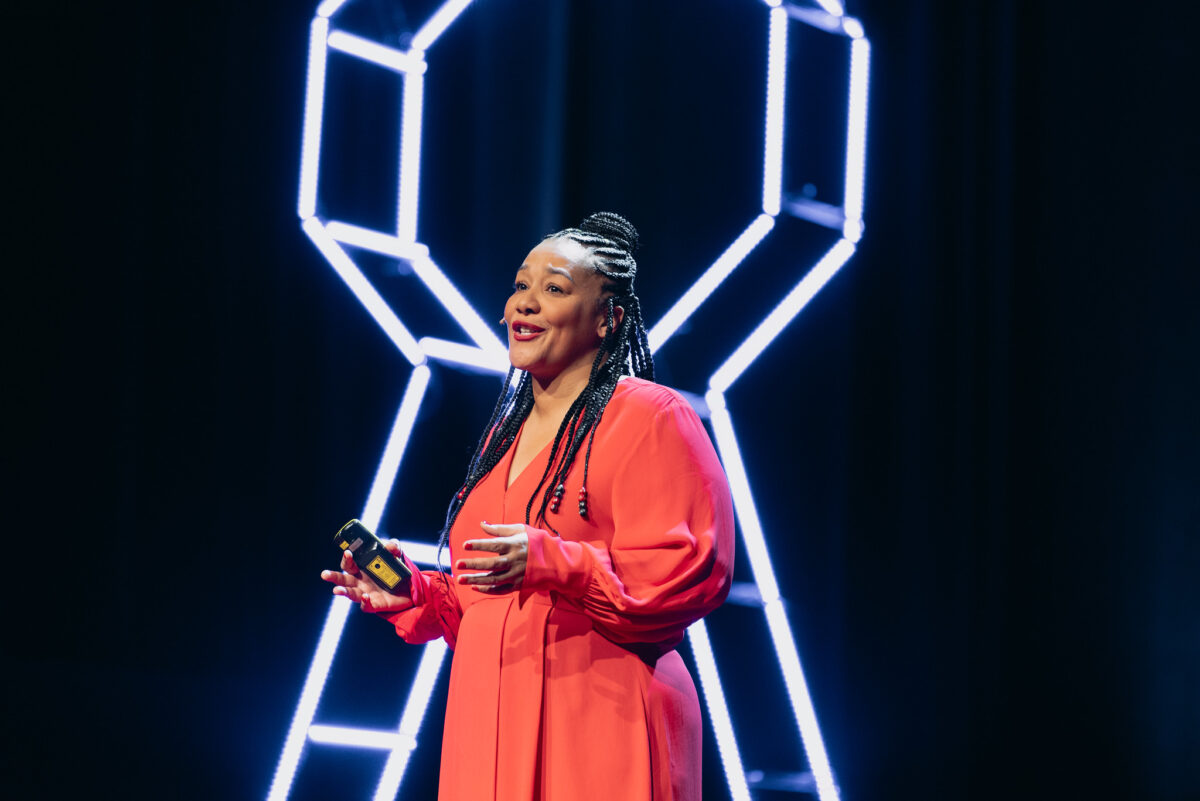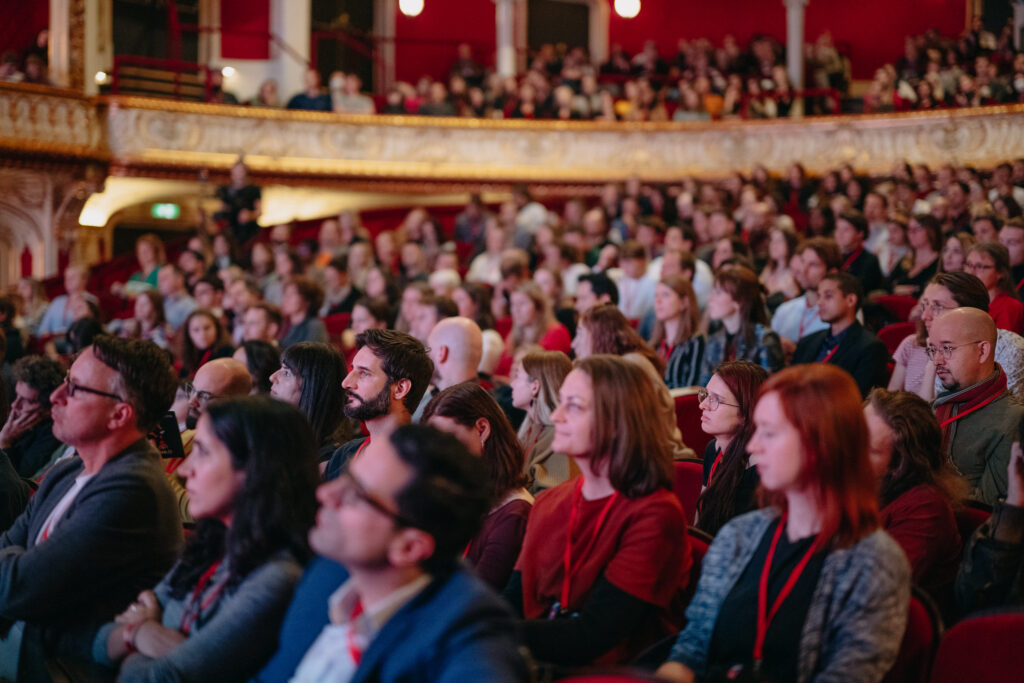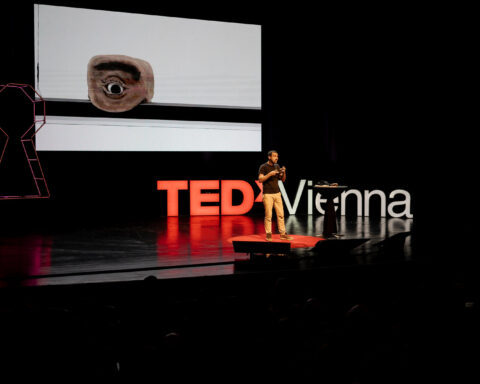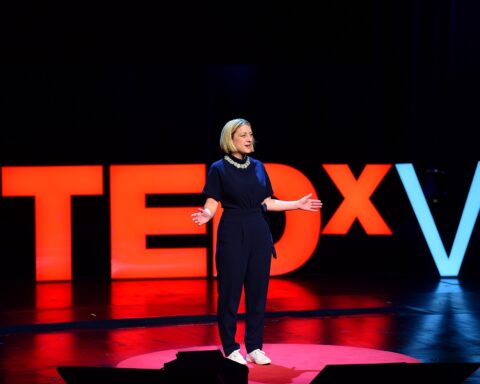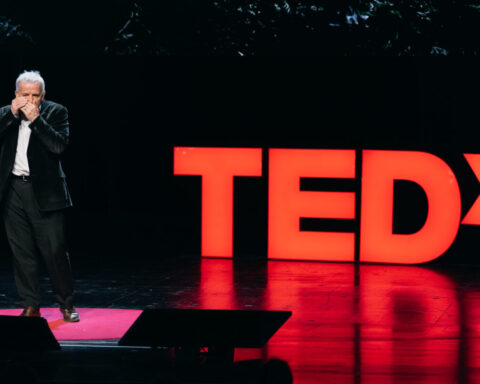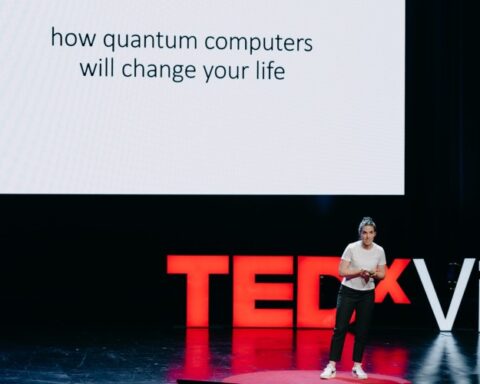This year’s TEDxVienna conference theme was UNTOLD, and speaker Naomi Jacobs delivered a compelling talk about the effects of being weighed down by the burdens of secrecy, and the importance of telling one’s story.
Naomi Jacobs woke up one morning with no recollection of the last 17 years of her life. She was a 15-year-old teenager trapped in the body of a 32-year-old single mother, who had a 10-year-old son. All memories of her life as an adult, including those of motherhood, were gone. She didn’t know it yet, but what Naomi had experienced was rare dissociative amnesia, resulting from childhood trauma.
In her talk, Naomi explained what it was like waking up with nearly two decades of lost time, and how she pieced together the missing years through her diaries, ultimately leading to the creation of her book, Forgotten Girl.
Following her talk, I had the chance to sit down with Naomi to discuss the experience further.
Naomi, your talk was so moving, I absolutely loved it. How are you feeling after giving such an emotional and impactful talk that touched so many?
Elated, everyone keeps asking me if I feel relieved and I’m like, no? I just feel happy. I have been looking forward to doing this for so long, for three years, because they first asked me in 2019, and then 2020, and then this year. So it’s been a long time coming, and I didn’t actually believe that I was going to make it until I was on the plane. My promise to myself was to just enjoy it, to have fun, and kind of just allow whatever happens to happen. And I think because I came into it with that mindset, I’m at that place now where I’ve had fun, and I’m having fun, and I have achieved what I had set out to do, so yeah I’m still elated.
You talked a bit about your students, and how you encourage them to share their stories, how do you get them to a place in which they are comfortable enough to share their stories with you? Is this difficult to do? How do you see the difference in them afterward?
It isn’t difficult I suppose. I am aware that they don’t trust, and I work in an area in Manchester which is really economically and socially deprived- so I know that a lot of these kids come into this environment already defensive, ready for an argument, or ready for a fight. So I suppose I always remind myself that it’s not personal, and nine times out of ten, if they have an issue with you, ultimately they are telling you that they are in pain. So I don’t run in the opposite direction, which I have seen a lot of teachers do, I run towards them. I want to know what it is that’s hurting them, I want them to tell me because I know that if you start getting it out, even if it’s just a tiny bit, I know it will make it feel better at that moment. So I wait, I play the waiting game, and I just kind of slowly, in a subtle way, let them know that there’s space for them if they need it. Sometimes it’s difficult because teaching demands a lot from you, and sometimes I’ll have a student in the room, and I know that student needs and wants to tell me something, but I am also thinking that I’ve got another 30 students I’ve got to teach in about ten minutes. So what I can tend to do is give up my lunch breaks, or other breaks, for students, it’s worth it. and sometimes I think if I had had someone like me at that age (and at times I did, and that’s probably why I’m still here because I had people who held space for me) – so even if I can only manage to do this once for some of my students, it is still what they need at that time. So yeah it’s trust, it takes time, but it’s worth it in the end.
Sometimes they just sit there and complain, and I’m like, tell me about it- “yeah I got up late this morning blah blah”. But sometimes they will sit there and I will talk about me and tell them what I’ve gone through, and then you see how they slowly start to open up, and those who already know me will sometimes come to sit and just cry.
On stage following your talk, TEDxVienna Curator Alina asked you a question about the importance of crying. From your perspective, why is it so important for people to understand that it is okay and even necessary to cry?
Well, first of all, I say on a physical level, it’s a great detox, and that in itself is a great reason to cry. But also I think, no, I know, that on a psychological level, if you had a situation in your life that was painful and you didn’t get to cry or express those emotions at that time, you don’t deserve to carry the pain or the shame any longer. I feel like it’s a must as a human being, that you deserve to let that go and let that out. So if you weren’t able to do it then, and it comes up say a year, two years, five years later, do it then. Make an event of it, “I’m going to cry tonight”, watch a really weepy film, top up the Ben and Jerries, wear “Super Mom” pajamas, just do what you need to do in order to honor that emotion, to honor that child that didn’t get to express themselves, or that teenager, or that 25-year-old. Because I couldn’t then, I didn’t have the space to, I didn’t know how to – but I can now.
I came from a background where you didn’t talk about things, everything was hidden. If things were going on in the home, then you definitely didn’t speak about them outside the home, and I know what it’s like to wear a mask for so long, until eventually what’s going on inside of you ends up breaking you.
So now sometimes I have a cry fest, when It’s building up, for me it’s like a sink that fills up, and sometimes I just need to turn the tap. I call it a dark day, but it’s not a bad thing, because what it means is that I close the blinds on life for that day. It takes some time for me, I get into that emotion to feel what it is, where it comes from, what it’s about and then I turn the tap, and afterward, I feel so cleansed.
Waking up with 17 years of memory loss meant you had no recollection of the birth of your son or what it was like being a mother. What was that experience like for your son and how did you both overcome it?
That part of the experience I really have to credit to my sister, and my best friend Katie. Only because my sister moved in, pretty much the day it happened, and kind of took over the mother duties, and to him, she is a second mother actually. There were times in my life where I had had a breakdown and my sister would move in for a while and take care of me, or give me the space to take care of myself while she took care of him. So I suppose it was quite normal for him to have his auntie come and stay with him and take him to school and so on. To him, it was quite an adventure, he also got to go visit my best friend Katie almost every night, she has four children, and two were kind of his age at the time, so he was very distracted between my sister and my best friend.
We didn’t tell him what had happened at first, but he knew, on some level he knew. He’s 24 now and he doesn’t remember any of it really. But I do think if you were to ask him, he would say he knew something was going on. But, as protective as I was with him, I still didn’t hide anything, especially toward the end of the memory loss. When I wrote the book, I sat him down and from there it was all kind of a process. He did say one thing though, when I and my sister sat him down and said: “Alright this is what has happened to your mom, we didn’t tell you at the time because we didn’t want to scare you”. And then he looked at me and said “Is that why you asked me what time I go to bed?”, and I thought, “Oops yeah I forgot about that”. And then he said, “No wonder you wanted to play my Xbox all the time”- you know since I was still a kid in a way. So that was really his initial reaction to it, then he took his skateboard and kind of just went off and continued skateboarding. But now, he’s just really really proud of me.
I was saying to a lady that I met in the audience, that when he was born, I held him in the hospital and told him that I would do everything in my power to make sure that he wouldn’t have the life that I had had. So it’s been a delicate balance trying to protect him from my trauma, but not to the point where he doesn’t know what’s happening, because that’s kind of what happened to me. I think I’ve done alright though, and I’m proud of him, he’s a good lad.
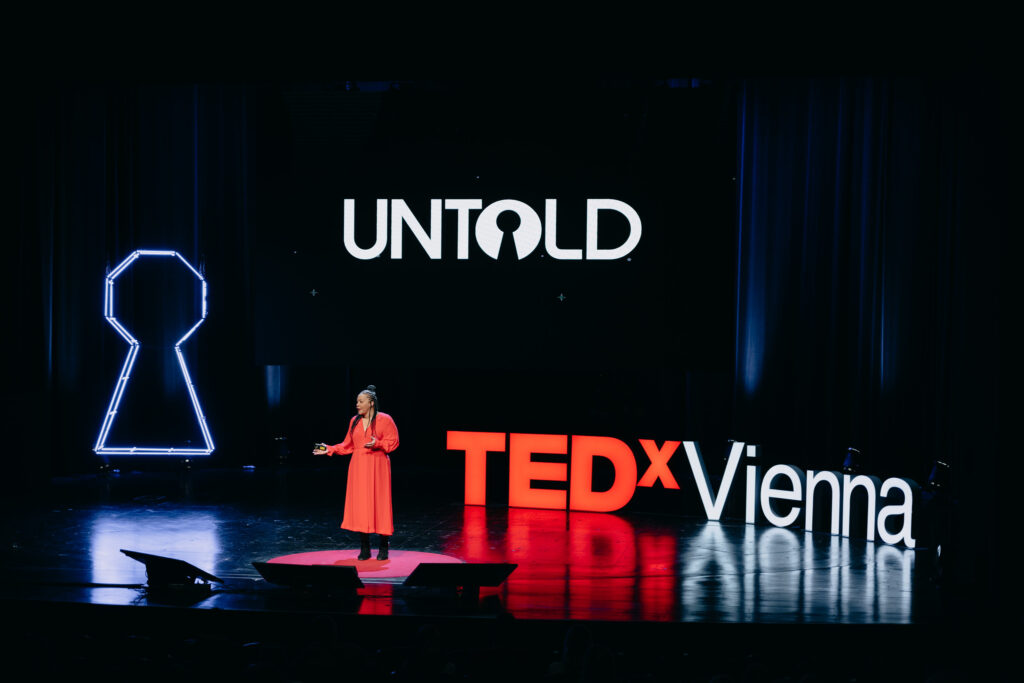
I would love to hear a little more about your book. How did you go about telling your experience of 17 years of memory loss due to trauma?
So the story is split into two, the first half of the book is teen “Nay”, and then the second half is adult “Naomi”. So there are kind of two stories about the two parts of me and my experience and my life, and the connection between my teenage self and my adult self is through the diaries. You start the story with me waking up as a teenager in a bedroom that I don’t recognize, and then you go on a journey of discovery with me to find out what I’m doing here, what has happened to me, and where those 17 years have gone. And then the diary is sort of a slow unveiling of those missed years and what had happened to me during that time.
Then there is this reconciliation with this teenage self, and in the end, I suddenly realize it was kind of me, it was 15 years of age that I had set my life on. So it was like I made a decision that my life went that way and I got to wake up in it, 17 years later, and see the consequences of those decisions. So it was a second chance for me and I started to write to my adult self in the diaries, realizing that those friends weren’t actually my friends, telling myself to sign up for a 12-step program to stop the drugs. My teenage self was like, “I have got a second chance to change this now. If I’m stuck in the future, this is what I’m going to do”.
When people ask me what got me through it, I say my best friend, my sister, and those diaries. If I didn’t have them, I probably wouldn’t be here today talking to you.
That’s why I also loved Sally’s talk about diaries. I still write diaries, and I use them as a therapeutic tool to see where I was then, to where I am now. And you know it’s weird, so much hasn’t changed, and yet so much has. It’s like a parallel journey to see how much I’ve achieved, what’s happened, to see how I’m thinking about things, so yeah – I’m a massive proponent of diaries and getting things out.

